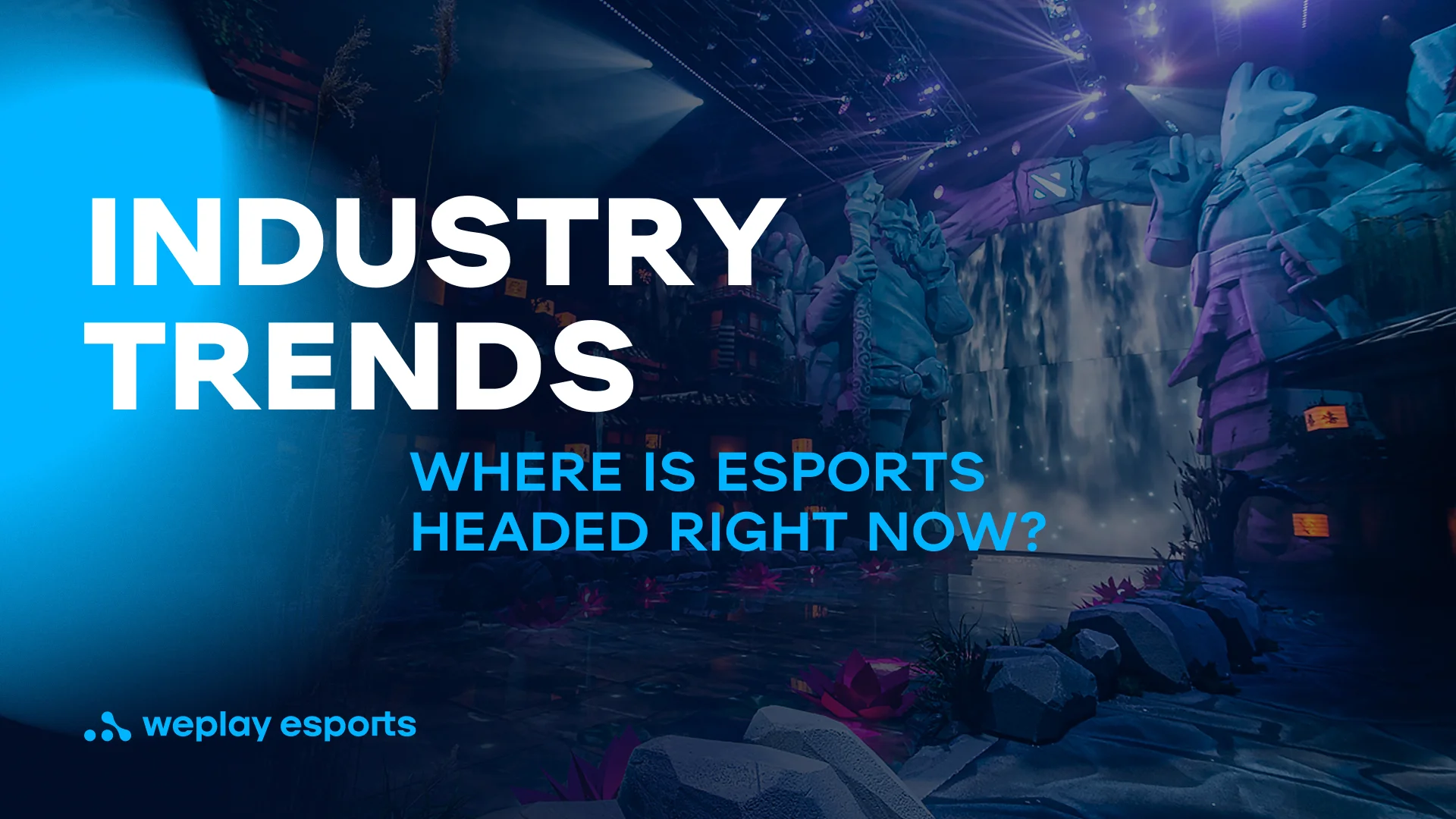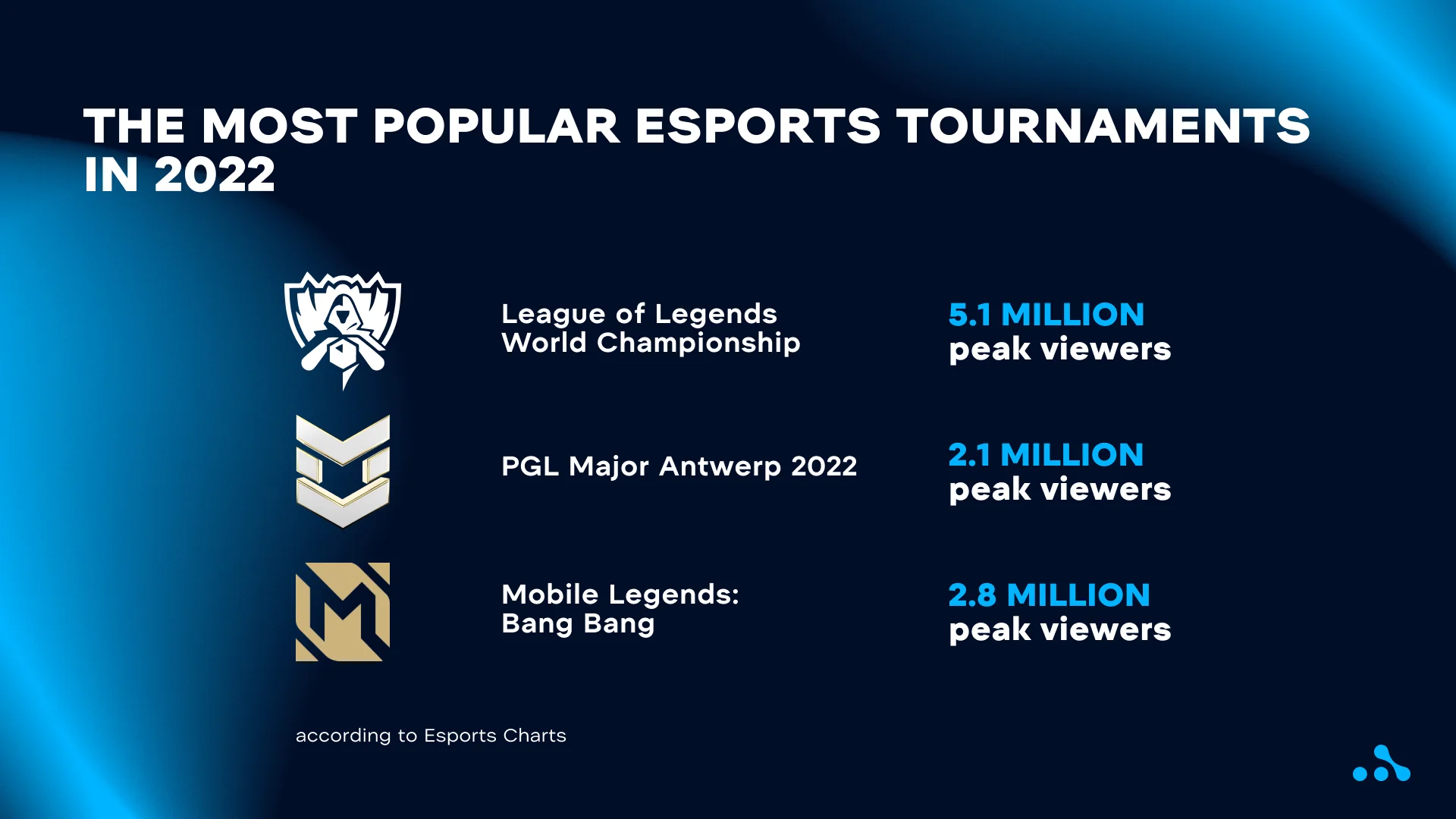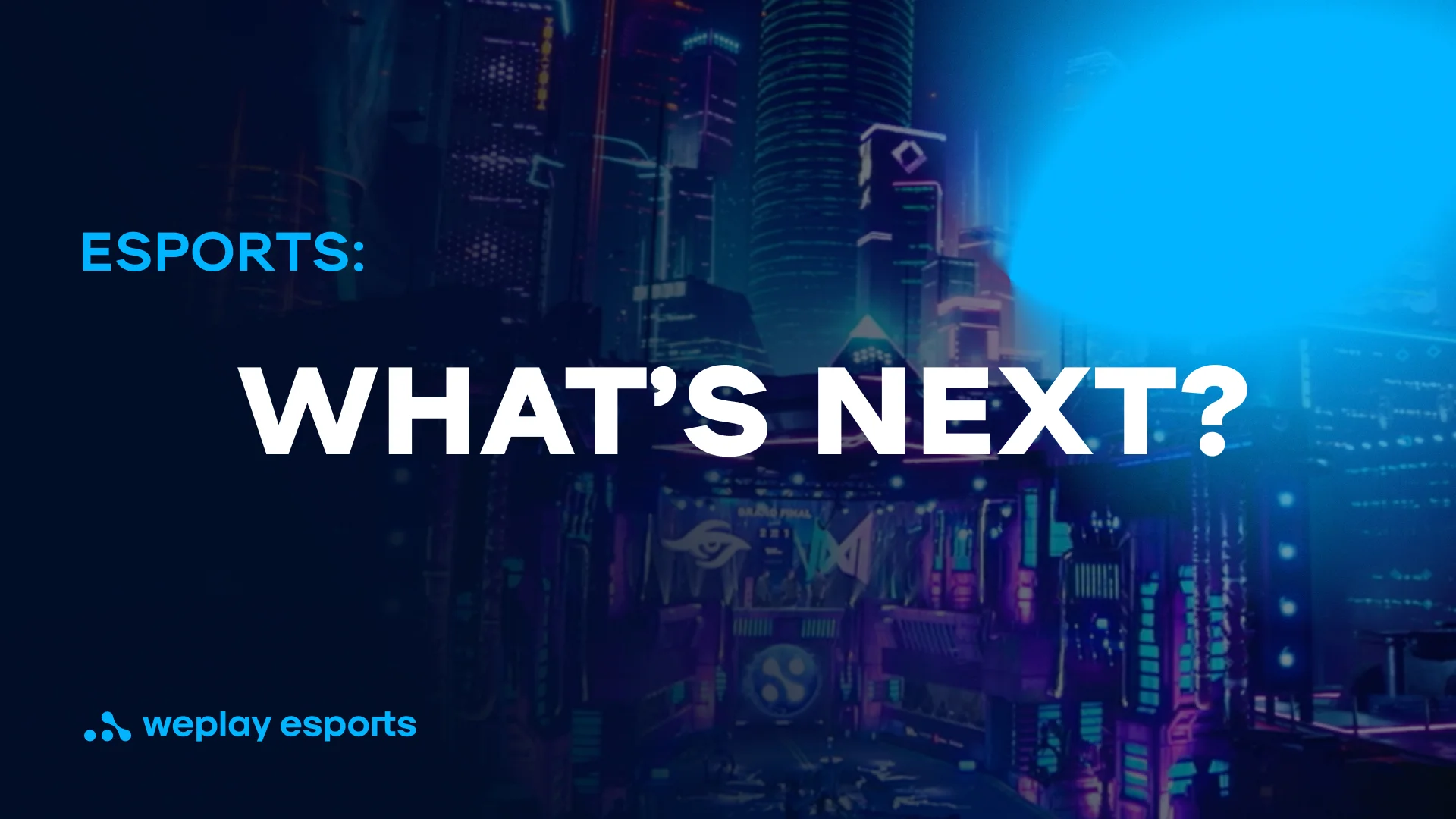April 4, 2023
Industry trends: where is esports headed right now?

7 min read
In 2021, esports became a $1 billion dollar industry, with projections estimating that the industry will reach $1.8 billion in revenue by 2025. Even though esports has already achieved great results, some are still looking at the area with distrust. Let’s try to get to the bottom of the issue while also thinking about the future of esports.
What are electronic sports?
Esports refers to competitive video gaming where esports athletes compete against each other in organized tournaments and leagues. Esports encompasses different genres and way more disciplines. You can learn more about the most popular games, tournaments, and prize money here, while this article digs deeper into the structure and perspectives of the esports industry.
Who are esports fans?
To understand esports better, let’s look at the core audience of esports events — the fans. Whether they are playing first-person shooters like Call of Duty or watching professional MOBA competitions like League of Legends World Championship, esports fans are united by their passion for the gaming world and a relatively similar viewer profile.
Primarily, esports fans are men between 18 and 35 years old with middle and high income. However, this information is not enough to discuss the prospects of the industry as a whole. Let’s start with the fact that each region has its own top games. For example, CS:GO has a huge fan base in Europe, while League of Leagues dominates in the Asian region and the United States. Some people like realistic shooters more, and some like fantasy MOBA games with eye-catching graphics. Each region also reacts differently to esports tournaments. A tournament can be both a bright festival and an intense competition featuring professional players.
While most esports fans prefer video esports games over traditional sports, it doesn’t mean that their interests are limited to electronic sports only. They just select esports competitions as one of their hobbies. Not all of them even play competitive video games on daily basis, while some do practice competing in professional gaming to become a top esports player one day. Their jobs may or may not be connected with esports directly. For example, they can work in the gaming industry, for instance, as game developers, or pursue job opportunities aiming to build a career working for esports tournament organizers. At the same time, other fans can work in IT, Marketing, or any other sphere.
Esports captures more and more platforms. If professional gamers use a PC, they can be a fan of Dota 2 or VALORANT. If they have a gaming console, Rocket League, Street Fighter, or FIFA might be their choice. Online mobile gaming that’s gaining momentum offers PUBG, Garena Free Fire, or Mobile Legends: Bang Bang. These factors make esports a perfect place for brands and sponsors. However, when it comes to esports, marketing works differently here than in other areas.
Should sponsors consider esports?
As stated earlier, esports attracts a target audience that’s very valuable for brands. Esports works best for the sponsors who are set for the long run, growing up a whole generation that will recognize their product and associate the most popular esports games and world championships with it. Esports fans around the world, from North America to South Korea, have different mentalities and play different games, but they are already used to virtual entertainment. At the same time, esports feels great in the digital sphere and offers a lot of opportunities for brand promotion — more than any professional sporting event.
But if you’re getting ready to get into esports, you should consider a few points.
Esports isn’t another form of sports
Esports should be considered a form of sport due to its competitive nature and the skill involved. However, the structure of the sports industry is completely different. All rights to any esports discipline belong to game publishers. That is, investing in esports is like cooperating with a brand: you have to follow all the rules put forward by the game publisher. On the other hand, in traditional sports, everything is simpler, and anyone can arrange their own hockey or baseball match.
The owner company can hold tournaments independently, as Riot Games does, or transfer the rights to hold events to other esports organizations, as Valve does. But there is no particular difference because, in the end, they have the same goal: to promote various games through esports. So any match should meet the marketing requirements of the online game itself.
Person-to-person communication
There are no formalities and boundaries in esports. If you’re boring, fans won’t listen to you. If you say something insulting and disrespectful, they’ll cancel you. Everything seems simple enough. However, many brands and sponsors have not yet understood this and try pushing their usual marketing strategies to the esports audience. For example, by inserting pre-recorded video ads at half-time in a football match, a brand can ensure that many viewers will see it. In esports, this approach will rather scare the viewer away, and they will simply leave the stream and return in time for the next match. This will have a bad effect both on the brand and the statistics of the event itself.
Plus, you should not forget that in addition to fans, occasional viewers also watch events. For example, when WePlay Esports hosted WePlay AniMajor, the first anime-themed Major in DPC history, it caught the attention not only of Dota 2 fans but also anime fans. Should a brand consider the theme of an event before preparing the marketing promo? Obviously yes. Esports events are different from each other, unlike football, where the time-tested approach works well.
Long-run strategy
Millions of people watch esports tournaments — for example, the 2022 League of Legends drew in more than 5.1 million peak viewers. However, the figures of popular traditional sports are still far out of reach. It’s worth mentioning one very important point here — esports is a very young field in every respect. The first esports tournament took place about 50 years ago, but in terms of scope, it can only be compared with a local football match. There was no hype, no attention from world media, no hundreds of cameras, and so on. Plus, the esports sector remained at this level until the first International for Dota 2 by Valve, that only happened 12 years ago. In comparison, the first NAIA men’s basketball championship was held in 1937, over 80 years ago. Several generations have grown up watching this championship. Can the same be said about esports? The answer is No.
It’s too early to draw conclusions. The younger generation is already used to digitalization and virtual sports, while the older generation prefers the more understandable traditional professional sports. Perhaps when the next generation grows up watching competitive gaming events in the evening, as people watch football now, the situation will change.
Prejudice: a recurring problem in esports
Whenever a child says they are interested in esports and want to choose it as a career path, it causes genuine concern in parents. No wonder, because the world of video games, and the world of esports in particular, is shrouded in myths. For example, many people believe that gamers have a video game addiction. Addiction is indeed a problem that requires professional help, but not every gamer is addicted. Games can be a normal hobby, just like TV shows, reading, or chess. Like with any other hobby, there should be clear boundaries between fun and disorder. Playing a favorite game for a few hours after work or a school day is normal and even helps to relax and put your thoughts in order. Playing games all day long, funneling money into in-game assets, and placing bets obsessively are the real symptoms of video gaming addiction. But due to the fact that the concepts of gaming and addiction are strongly linked in society, a number of other myths arise.
For example, there is the myth that gamers have poor health. Even though a large study shows that there is no correlation between gaming and obesity, the misconception still persists in society, as well as the myth that both games and esports are only interesting for children. The latter myth has a particularly strong influence on sponsors’ decisions to stop investing funds into esports. However, many adults enjoy spending their evenings watching their favorite esports teams play.
Esports: what’s next?
Competitive play is something that will always generate interest. Long before the concept of esports, there were already grassroots movements in gaming clubs where casual gamers would try to score the most points on the gaming machine in order to put their name on the list of the best players in the area. Since then, the entire video game industry has undergone a lot of changes, but the desire to compete and be the best has not gone away.
Despite the problems, esports is evolving and a new concept is arising. Instead of chasing huge cash prizes, game publishers are focusing on the consistency of esports leagues and the quality of the show to attract new audiences, because esports works great as a marketing tool for gaming.
The esports industry has seen significant growth in recent years, but like any investment, it doesn’t come without its risks. Factors that could affect industry growth include changes in technology, regulatory changes, and economic factors. If you are interested in investing in esports, you should research the industry and its various companies: game publishers, esports teams, and event organizers.

